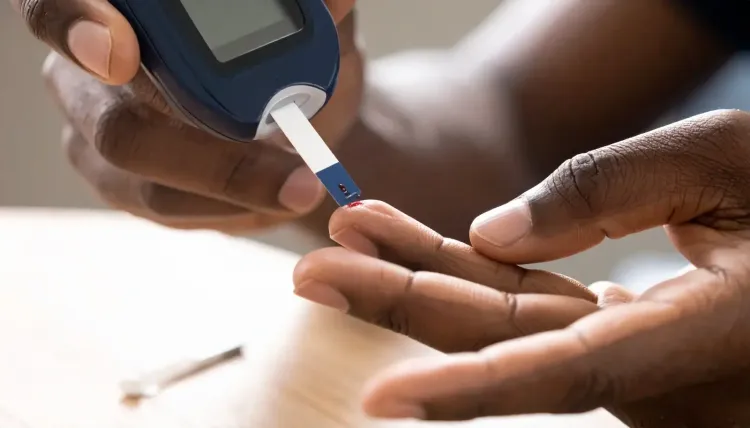Could Cannabis Use Increase Diabetes Risk by Four Times?

Synopsis
Key Takeaways
- Cannabis users may have a fourfold diabetes risk.
- Study analyzed over four million adults.
- Healthcare professionals should discuss cannabis use.
- Further research is needed on cannabis' metabolic effects.
- Public health messaging must adapt to these findings.
New Delhi, Sep 15 (NationPress) A significant study reveals that individuals who consume cannabis might face a fourfold increase in their risk of developing diabetes. This research, involving over four million adults, was reported on Monday.
The global prevalence of cannabis use is on the rise, with approximately 219 million users (4.3% of the adult population worldwide) recorded in 2021. However, the long-term effects of cannabis on metabolism remain largely uncharted territory.
While certain studies have highlighted potential benefits such as anti-inflammatory effects or weight control, others express concern over its impact on glucose metabolism and insulin resistance. The extent of the diabetes risk associated with cannabis use has not been definitively established.
The findings from this research indicate that new diabetes cases were markedly higher among cannabis users (2.2%) compared to non-users (0.6%), with statistical analysis indicating that cannabis users are nearly four times more likely to develop diabetes.
Dr. Ibrahim Kamel, the study's lead author from the Boston Medical Center, US, stated, "As cannabis becomes more accessible and accepted in various regions, understanding its health risks is crucial."
The research team examined electronic health records from 54 healthcare organizations across the US and Europe, identifying 96,795 outpatients (aged 18-50, 52.5% female) with cannabis-related diagnoses, including cases of intoxication and withdrawal, between 2010 and 2018.
These individuals were matched with 4,160,998 healthy participants (without any history of substance use or major chronic illnesses) based on age, gender, and pre-existing conditions at the beginning of the study, and were monitored for a duration of five years.
Dr. Kamel emphasized, "Insights from reliable real-world evidence underscore the necessity of incorporating diabetes risk discussions into substance use disorder treatments and counseling. Healthcare professionals should routinely converse with patients about cannabis use to help them comprehend their overall diabetes risk and the possible need for metabolic monitoring."
The implications of this study are immediate, potentially affecting metabolic monitoring practices and public health messaging.
The research team called for further investigations into the long-term endocrine impacts of cannabis and whether the diabetes risks are confined to inhaled products or also apply to other forms, like edibles.
The results will be presented at the ongoing Annual Meeting of the European Association for the Study of Diabetes (EASD) in Vienna, Austria.










